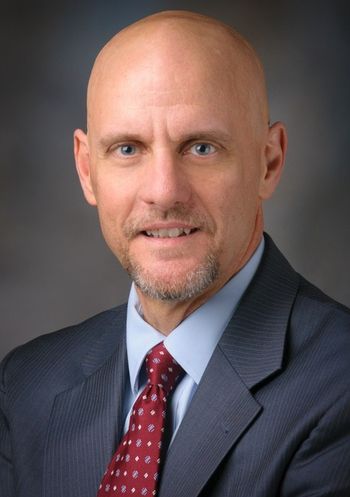
It includes 15 solutions from digital health developers including remote monitoring services and digital therapeutics for eight common chronic conditions.

It includes 15 solutions from digital health developers including remote monitoring services and digital therapeutics for eight common chronic conditions.

A new sponsor will award a Massachusetts-based organization up to $25,000.

A new survey from Blumberg Capital reveals that a strong majority of consumers are supportive and optimistic about implementation of AI in healthcare.

The grant will support a three-year, statewide effort designed to expand, develop, and deepen harm reduction services throughout the state.

South Texas healthcare philanthropy built a first-of-its-kind project to fund and study integrated care for low-income, uninsured residents in underfunded border communities.

The message for all people is to persevere in their dedication to a healthy lifestyle.

A new PwC HRI report reveals that next year healthcare leaders will face a call to action-especially on progress and returns on the path to the digitization of the industry.

Study points to a need to better understand the link between aspirin use, race/ethnicity, and socioeconomic status and their role in cardiovascular disease.

Diabetes and hypertension are among the primary diseases included.

The fish oil drug is approved to reduce cardiovascular risk.

New precision medicine strategy uses the latest genomics science and technology to help providers identify and start their patients on the best cancer treatment, faster.

A survey of primary care physicians in 11 countries finds doctors lack the tools to coordinate patient care despite progress in using health information technologies.

Study examines the clinical benefit of re-engaging in a corporate weight loss program.

DNA, ROI, and new technology that can reduce treatment costs and improve outcomes.

A new survey reveals the issues that detract from the patient experience.

What was the best holiday gift you ever received? Here are a few memories top healthcare executives shared with us.

New program helps Medicaid enrollees proactively manage their type 2 diabetes.

The U.S. needs to do better to support people in need, with improved access and cost to quality healthcare, and technology must be leveraged to meet these goals.

U.S. health executives can glean useful insight from studying how other countries approach healthcare.

Strategies such as practicing to top of license, focusing on risk, and data mining can be used to transform care management.

New evidence shows they positively influence hospital care transitions.

Organizations that are ahead of the curve are more likely to rely on data analytics to develop innovative benefits programs.

How the changes affect the safe harbors of Anti-kickback and self-referral Rules

Deloitte’s 2019 global healthcare consumer survey finds people are willing to shop for deals, disagree with their doctors, and use technology to track and maintain their health.

Health and fitness apps are gaining popularity, and women’s health is likely to drive the market.

Alkermes omitted warnings about serious risks from taking the drug.

Harvard Pilgrim Health Care and Ride Health collaborate to provide transportation for Medicare Advantage members in two states.

Recent study measures 5% growth since 2018.

Study reveals what U.S. regions are most affected, their causes of death, and why.

Stephen Hahn is confirmed by the U.S. Senate.